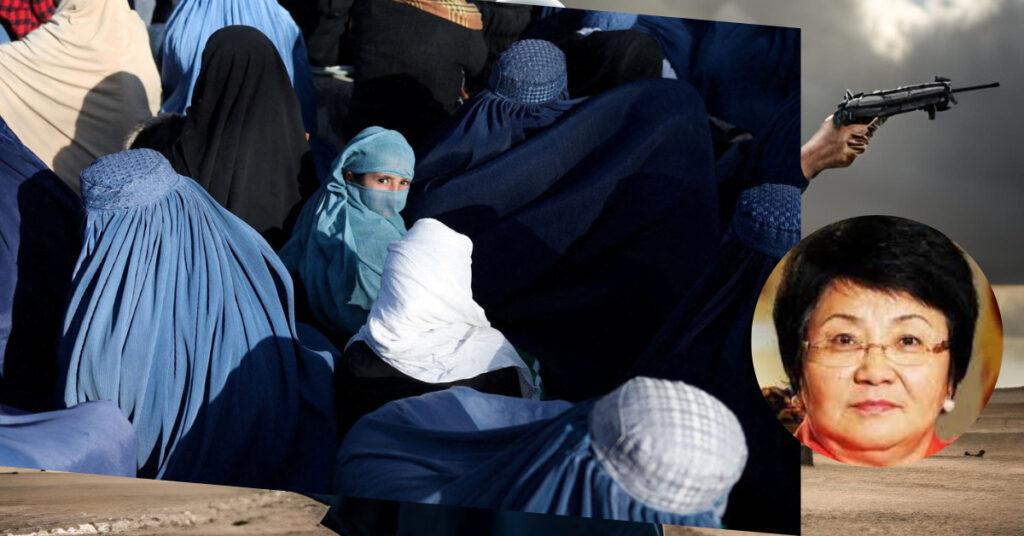The international community is faced with a formidable challenge in recognizing the Taliban government of Afghanistan due to the persisting restrictions on women and girls, according to the United Nations envoy to the country, Roza Otunbayeva. In her address to the UN Security Council, Otunbayeva emphasized that while the Taliban seeks recognition from the UN and its member nations, their actions directly contradict the core values enshrined in the United Nations Charter. She candidly highlighted the self-imposed obstacles the Taliban has created for themselves through their decrees and limitations, particularly those affecting women and girls. Otunbayeva unequivocally conveyed that as long as these restrictive measures remain in place, it is highly improbable that the international community will acknowledge their government.
Since assuming power in August 2021 amid the withdrawal of US and NATO forces, the Taliban initially pledged a more moderate approach compared to their previous rule from 1996 to 2001. However, they have subsequently enforced regressive measures targeting women and girls. These measures include barring women from numerous job opportunities and public spaces such as parks, baths, and gyms. Additionally, girls are prohibited from continuing their education beyond the sixth grade. The Taliban has also reintroduced their strict interpretation of Islamic law, resulting in public executions.
Despite appeals and efforts to engage with the Taliban, there has been no tangible progress in lifting these restrictions on women and girls, including the ban on Afghan women working for the UN, which was imposed in April. Otunbayeva stated that the Taliban provided no explanation for this ban and offered no assurances regarding its potential reversal. This stance has been met with significant disapproval both domestically and internationally, severely damaging the Taliban’s legitimacy while causing immense suffering to half of Afghanistan’s population and hampering the country’s economy.
Recognizing the importance of gender equality, the UN remains resolute in ensuring that female national staff will not be substituted by male staff, as suggested by some Taliban authorities. In April, the Security Council unanimously adopted a resolution calling for the Taliban to swiftly reverse their increasingly oppressive measures against women and girls. The resolution specifically condemned the ban on Afghan women working for the UN, deeming it unprecedented in the history of the organization.
Otunbayeva, in her political assessment, highlighted the insular and autocratic nature of the Taliban regime, which exhibits an unaccountable central authority and a predominantly Pashtun and rural all-male government. While Afghanistan’s economy currently shows stability in terms of inflation and exchange rates, largely due to reduced corruption, severe poverty affecting 58 percent of the population remains a significant concern. This dire situation emphasizes the urgent need for the Taliban to address the basic needs of the Afghan people and respect human rights to regain domestic and international legitimacy.
The recognition of the Afghan government by foreign countries and international organizations hinges upon the behavior of the Taliban leaders towards Afghan women. The United States State Department has expressed that the recognition depends on whether the Islamic Emirate’s leaders demonstrate respect for women’s rights. The Deputy Spokesperson of the US Foreign Ministry, Vedant Patel, stated that the failure to respect women’s rights would not only hinder Afghanistan’s progress but also undermine its international legitimacy.
On the other hand, Islamic Emirate officials claim to have fulfilled all the necessary conditions for recognition. Women’s rights activists, however, emphasize the importance of the Islamic Emirate adhering to international laws and human rights, as safeguarding human rights would bring the interim government closer to the international community.
The situation in Afghanistan remains complex, with the recognition of the Taliban government contingent upon their commitment to addressing the restrictions on women and girls, upholding human rights, and ensuring the country’s stability and prosperity. The international community, represented by the United Nations, is actively engaged in urging the Taliban to reverse their oppressive policies.


